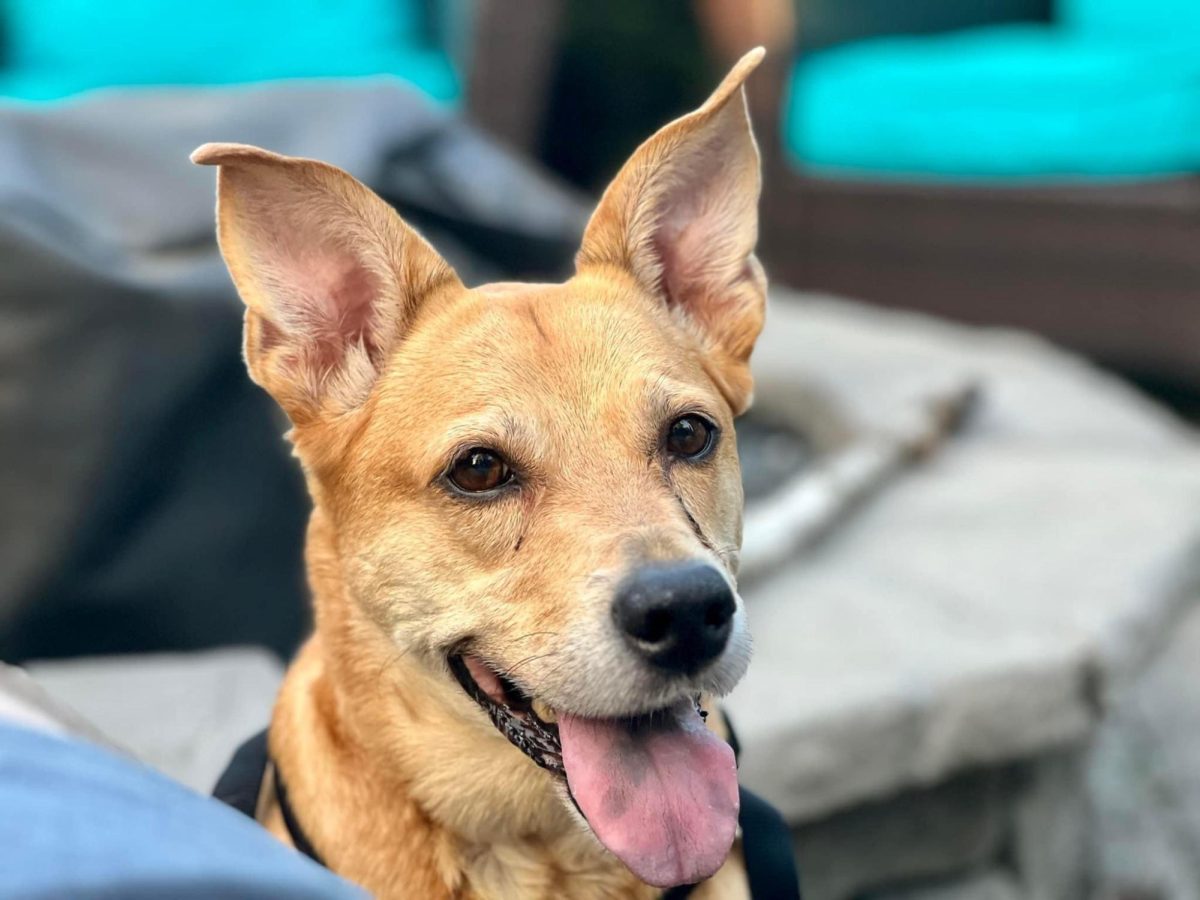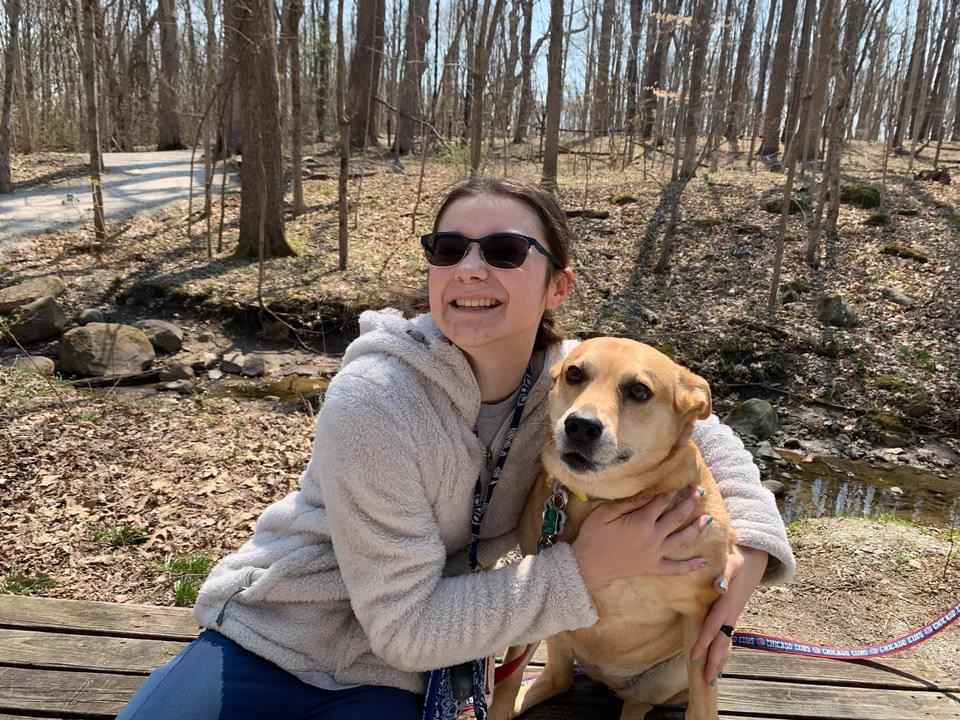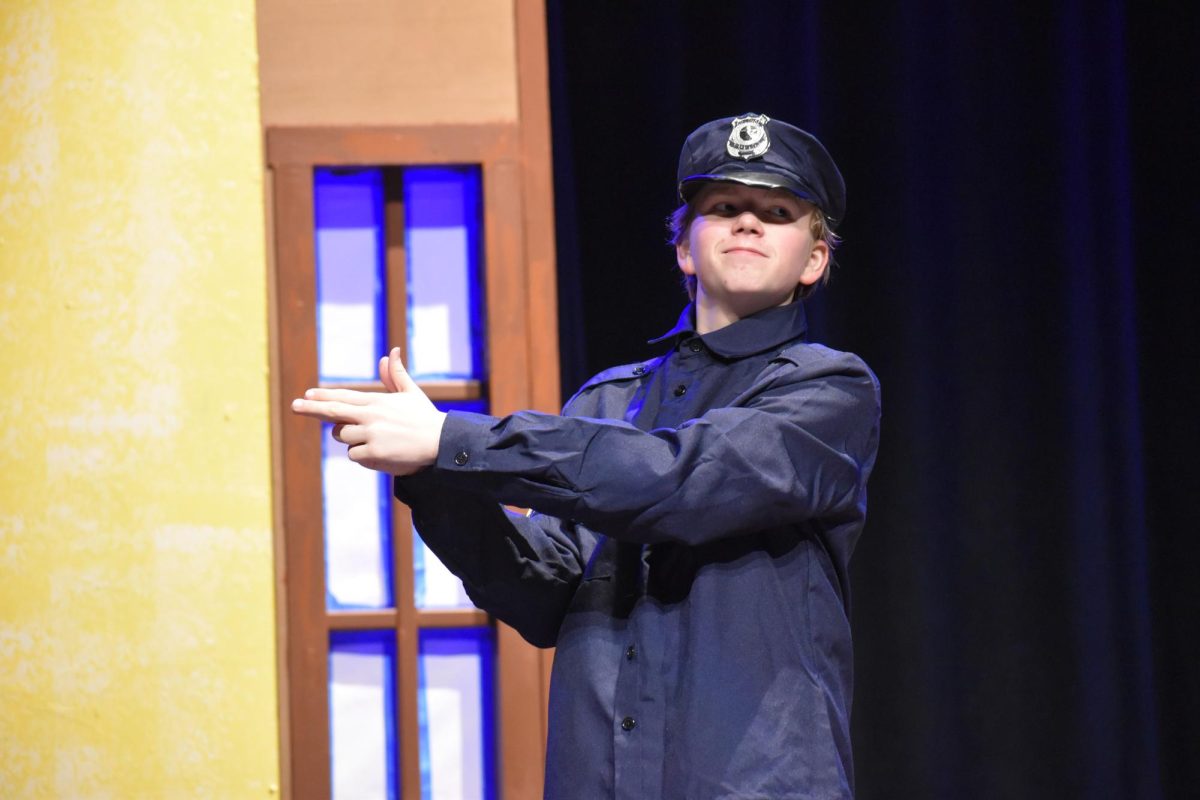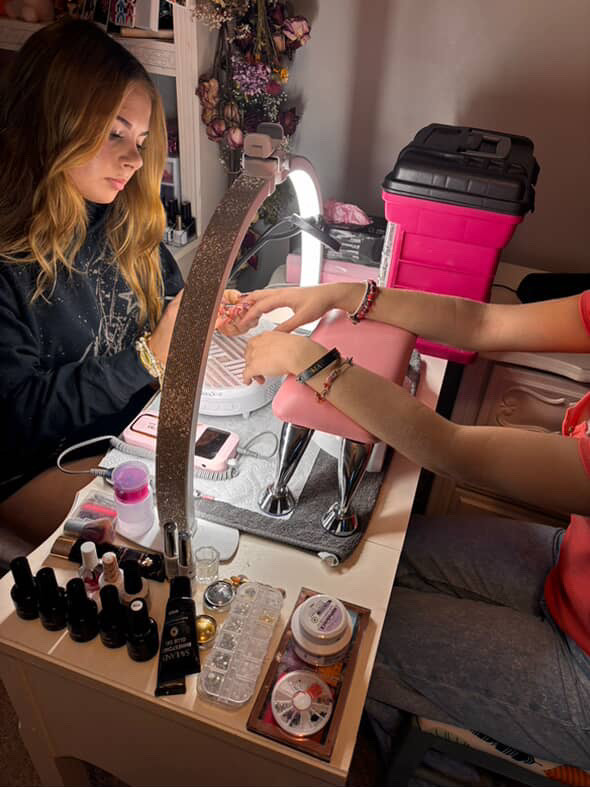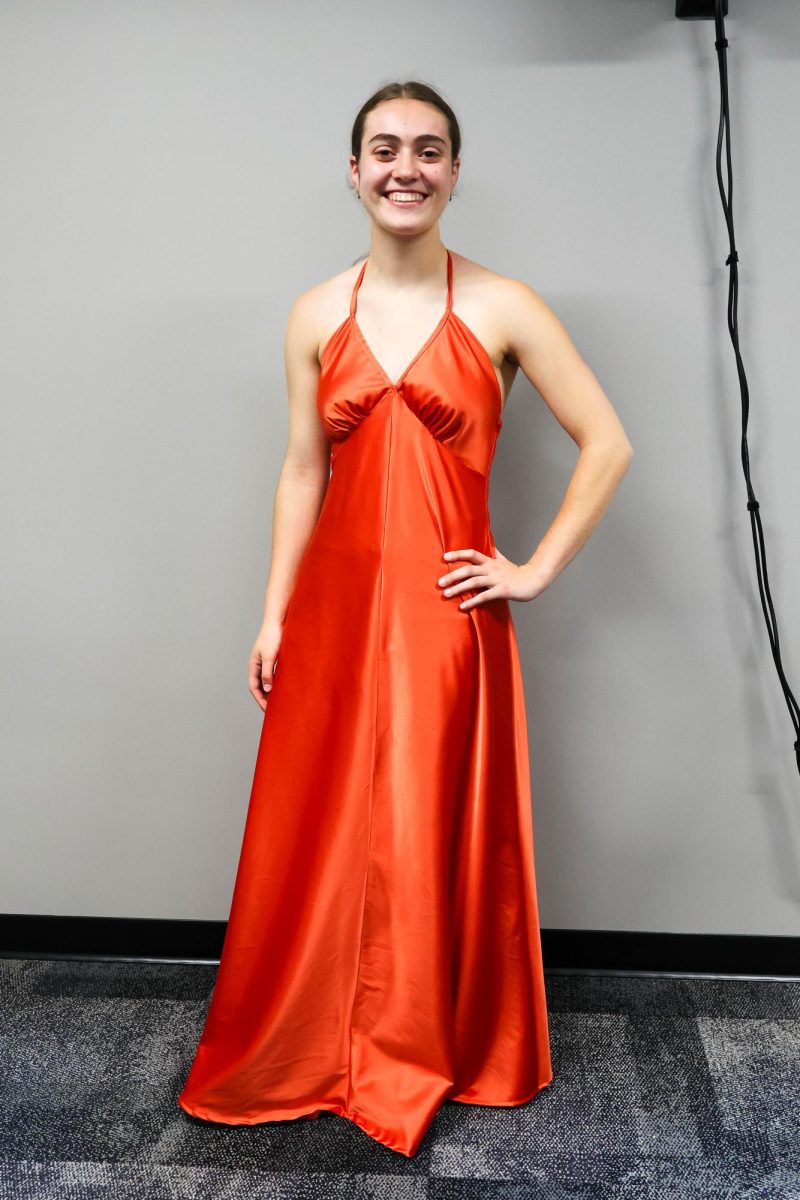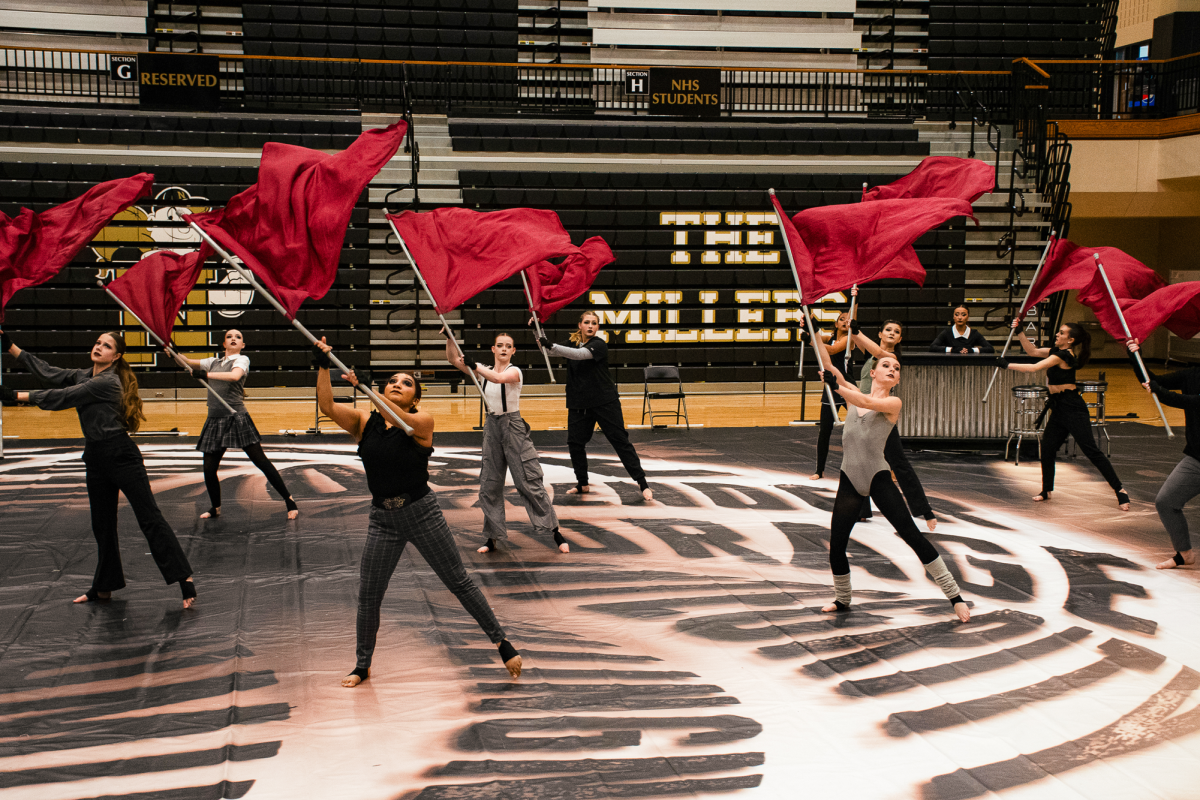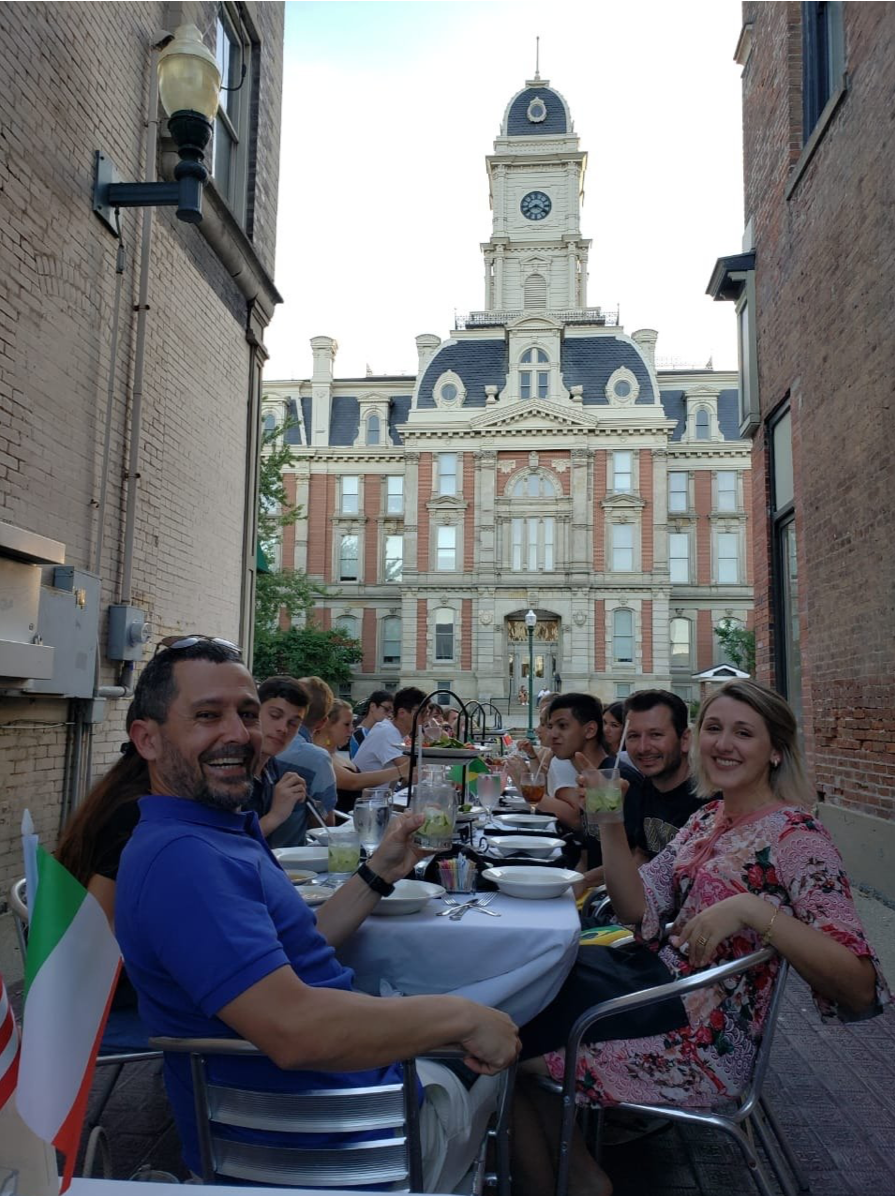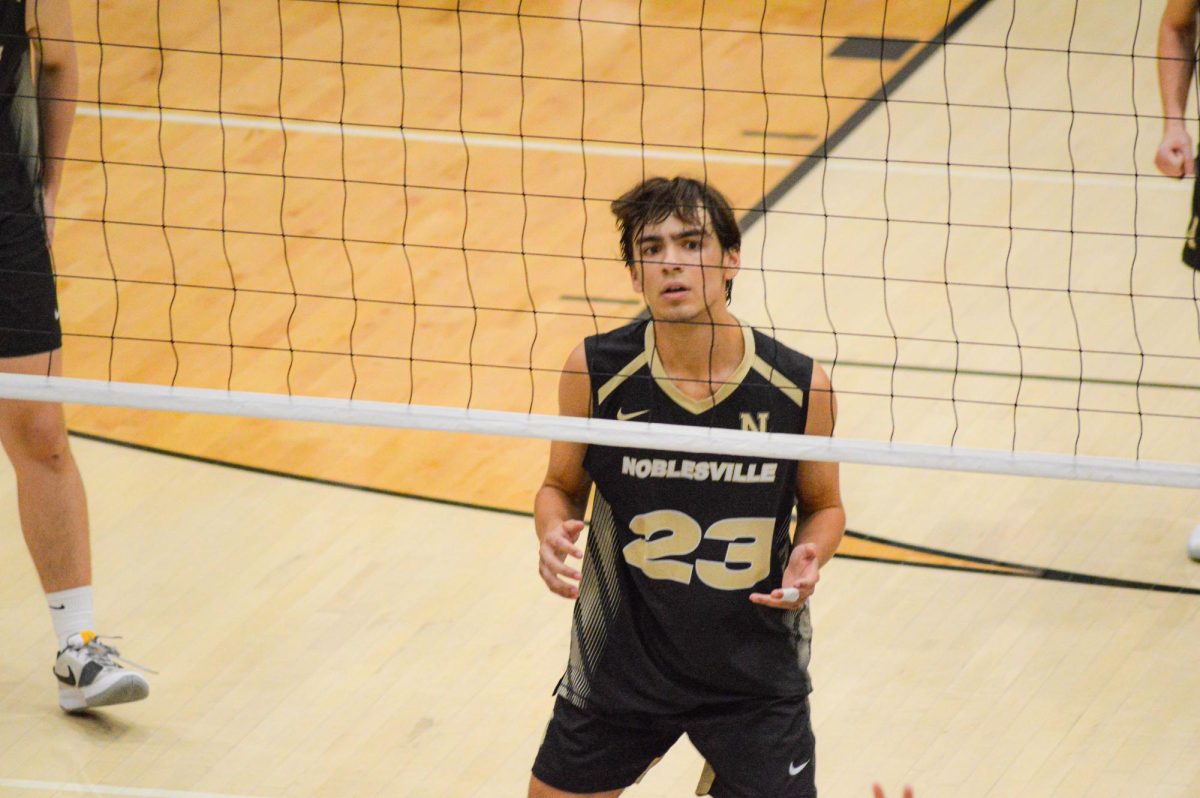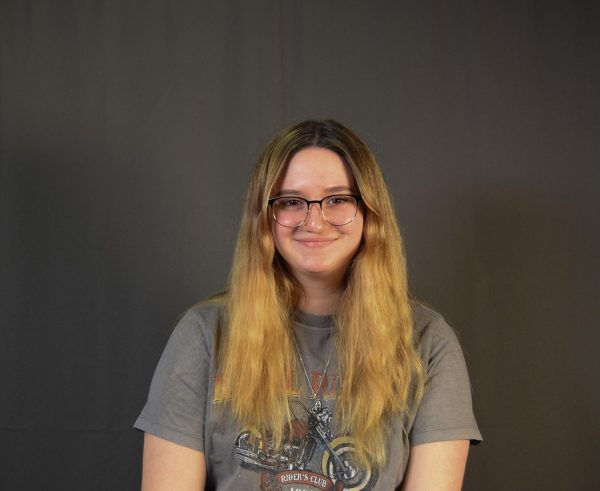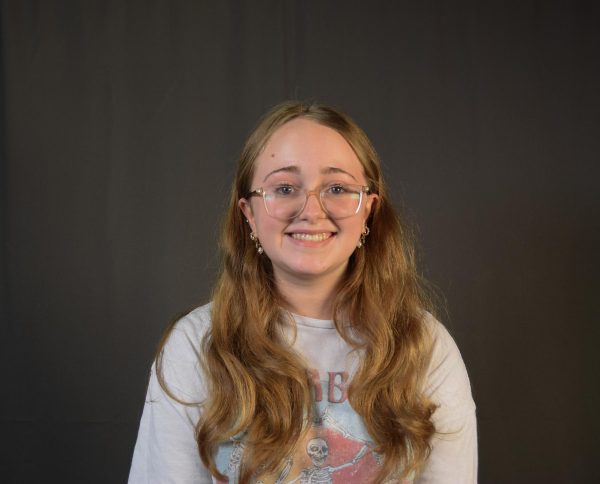Your bags are packed, and your life as you know it has been transferred into a few suitcases, sending you headfirst into the next chapter of your academic and social career. As you’re about to leave your house for the last time for your new job, to go to college, or to travel until winter break, you have a sense you’re missing something. Your dog sits in the doorway, tail wagging, expecting you to be back in only a few short hours, as usual. Today is a day of celebration, but emotions are suppressed by the oncoming feelings of the absence of your furry friend. Goodbyes are usually easy and not for long, but this one is going to be a lot tougher.
Amelia Wiggins:
Senior Amelia Wiggins has been showing her llama, Maria, in animal shows for five years. Wiggins says that the hardest part of leaving Maria is knowing how much she will miss her while she is 3 hours away studying Experimental Design at Bowling Green State University in northern Ohio.
“I’ll still be able to come back and visit, but I’m really worried that she’ll forget me,” Wiggins said.
However, Wiggins knows that she’ll be able to keep Maria in her thoughts by reminiscing on their favorite memories together, such as participating in themed costume contests at Hamilton County’s fairgrounds.
“Whenever I’m at the county fair, I often have her out to show people more about the llamas,” Wiggins said. “Doing so feels very easy, which is different than if I was talking to a stranger in general, since I’m honestly not great around people I don’t know.”
Gabrielle Stage:
Senior Gabrielle Stage’s twelve-year old dog, Lucy, has been her childhood companion since the moment the Stage family adopted her from the Humane Society eleven years ago. Although Lucy and her owner won’t be together as frequently while Stage pursues a degree in Animal Science at Purdue University, they will be able to stay in close proximity part-time. Stage says that Lucy will travel to Purdue’s animal hospital regularly for chemotherapy treatments, meaning that the two will remain in contact.
“I’m lucky that Lucy will be at the Purdue small animal hospital so I can see her before and after her monthly treatments,” Stage said. “This way I can still see her every month without driving back home.”
While Lucy’s health issues allow the pair to remain close, Stage understands that not being with her dog as much as usual poses a threat: her dog’s potential to relapse. Stage says that she is afraid she may not be able to be there for her beloved friend in the case of an emergency.
“Last year, [Lucy] had a spinal autoimmune disease that caused her to be paralyzed, but since then she still gets monthly chemo treatments and can walk,” Stage said. “While I’m attending Purdue, I’m hoping that she remains healthy and doesn’t have a relapse.”
While some anxiety comes from the “what-ifs” of leaving for West Lafayette, Stage’s dog remains in her heart. She says that her mind will be at ease as long as the duo are together.
“She’s not an emotional support animal, but she helps me manage my stress levels when it comes to anxiety,” Stage said.
Danielle Baker:
Throughout her senior year, Danielle Baker has been preparing for her college career at Huntington University while studying Veterinary Nursing and Animal Health. However, she’s also been preparing to leave her pets — Confetti, Skye, Mocha, and her three Guinea pigs — behind.
“Instead of seeing them every day, I’ll only see them on occasion, which will be a big adjustment,” Baker said.
Baker’s favorite memories with her pets include camping with Skye, her six-year old German shepherd, and bonding with Confetti, her five-year old llama, at their first show together. Baker says that since childhood, her pets have helped her deal with anxiety-inducing situations and have served as a way to cope with difficult emotions.
“While I’m not diagnosed with any conditions, any time I am feeling stressed, taking Skye on a walk or cuddling one of the Guinea pigs always makes me feel more at ease,” Baker said.
Ava Fisk:
“My other half” — that’s how senior Ava Fisk describes her relationship with her service dog, Dixie. Fisk will be beginning her freshman year at Taylor University in August to study Youth Ministry, and says that she’s nervous about leaving her animals behind her at home.
“The hardest part about leaving my animals is knowing that a consistent source of joy won’t be as readily available,” Fisk said. “Truthfully, I’m most nervous over how I will react to not being home.”
Fisk will be joined by Dixie, a service dog that assists Fisk with anxiety and depression. Fisk says that training an adult dog typically takes three to four years, but Dixie was able to master all of her necessary skills in under eight months.
“Dixie and I have gone weeks where I haven’t been able to train her because of my other medical problems, yet she never backtracks in her training,” Fisk said.
Fisk says that her journey with Dixie was inspired by her faith, and believes that her strong relationship with Christianity is the reason she and Dixie have made so much progress in such little time.
“I needed a service dog, and at first, I was ashamed,” Fisk said. “But through this miraculous progress, I’ve learned that many times God’s plan includes reaching out to unconventional resources for help.”



